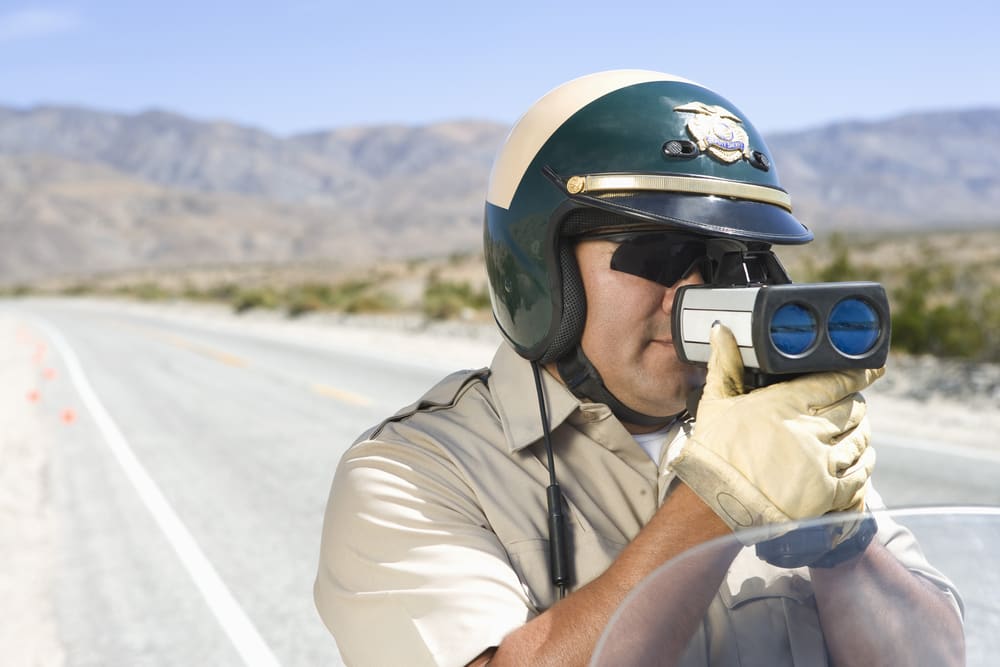

Driving in a state that’s not your home state may give you a false sense of security when it comes to speeding tickets and traffic fines. If you think the ticket won’t follow you home, you should know that 44 of the states in the U.S. have reciprocal agreements with each other regarding motor vehicle violation convictions of drivers. Shared information may be about a minor offense, such as a speeding ticket, or a major offense, such as a DUI.
The Driver License Compact (DLC) and Non-Resident Violator Compact (NRVC) are the main organizations that share data about traffic offenses. There’s also the Driver License Agreement (DLA); however, it doesn't yet have the state membership that the other two compacts currently have.
States included in the Driver License Compact
The states that are members of the DLC are required to report traffic ticket convictions to the state where the driver is licensed. The driver's home state then determines if the traffic offense will be placed on the person's driving record and if any points will be assessed.
States that abide by this compact include:
- Alabama
- Alaska
- Arizona
- Arkansas
- California
- Colorado
- Connecticut
- Delaware
- Florida
- Hawaii
- Idaho
- Illinois
- Indiana
- Iowa
- Kansas
- Kentucky
- Louisiana
- Maine
- Maryland
- Minnesota
- Mississippi
- Missouri
- Montana
- Nebraska
- Nevada
- New Hampshire
- New Jersey
- New Mexico
- New York
- North Carolina
- North Dakota
- Ohio
- Oklahoma
- Oregon
- Pennsylvania
- Rhode Island
- South Carolina
- South Dakota
- Texas
- Utah
- Vermont
- Virginia
- Washington
- West Virginia
- Wyoming
The only states that don’t participate in the DLC are:
Keep in mind that if you live in one of the above five states, an out-of-state ticket may still follow you home, because most of these states have informal agreements with other states to exchange information regarding traffic tickets.
States included in the Non-Resident Violator Compact
The Non-Resident Violator Compact requires member states to suspend the driver's license of those who get traffic tickets in other states and fail to pay or take care of them.
States that abide by the NRVC include:
- Alabama
- Alaska
- Arizona
- Arkansas
- California
- Colorado
- Connecticut
- Delaware
- Florida
- Georgia
- Hawaii
- Idaho
- Illinois
- Indiana
- Iowa
- Kansas
- Kentucky
- Louisiana
- Maine
- Maryland
- Massachusetts
- Minnesota
- Mississippi
- Missouri
- Montana
- Nebraska
- Nevada
- New Hampshire
- New Jersey
- New Mexico
- New York
- North Carolina
- North Dakota
- Ohio
- Oklahoma
- Oregon
- Pennsylvania
- Rhode Island
- South Carolina
- South Dakota
- Tennessee
- Texas
- Utah
- Vermont
- Virginia
- Washington
- West Virginia
- Wyoming
The states that don’t participate in the NRVC are:
- Alaska
- California
- Michigan
- Montana
- Oregon
- Wisconsin
As with the DLC, the above states may have their own agreements with other states and may still suspend or penalize drivers who don't pay their out-of-state traffic tickets.
What is the Driver License Agreement?
The Driver License Agreement (DLA) aims to combine the DLC and NRVC to establish a more efficient and streamlined agreement for the jurisdictions to share and transmit driver and conviction information.
The majority of the states haven't agreed to the DLA yet, however - only Arkansas, Connecticut, and Massachusetts have signed up as members (although several states are currently pending). The provinces and territories of Canada, as well as the states/federal district of Mexico, can participate in the DLA, unlike the DLC and NRVC.
National Driver Register
The National Driver Register (NDR) already includes all states and the District of Columbia and contains records on those who have had their licenses revoked or suspended, or who have been convicted of serious traffic violations (such as a DUI) throughout the United States.
The state DMV usually checks to see if that individual's name is in the NDR file when a person applies for a driver's license. If that person has been reported to the NDR as a “problem” driver, a new license may be denied until the issue has been resolved and the license has been reinstated in the state that has the hold on their license.
This article is adapted with approval from carinsurance.com: http://www.carinsurance.com/which-states-share-traffic-ticket-reciprocity.aspx



